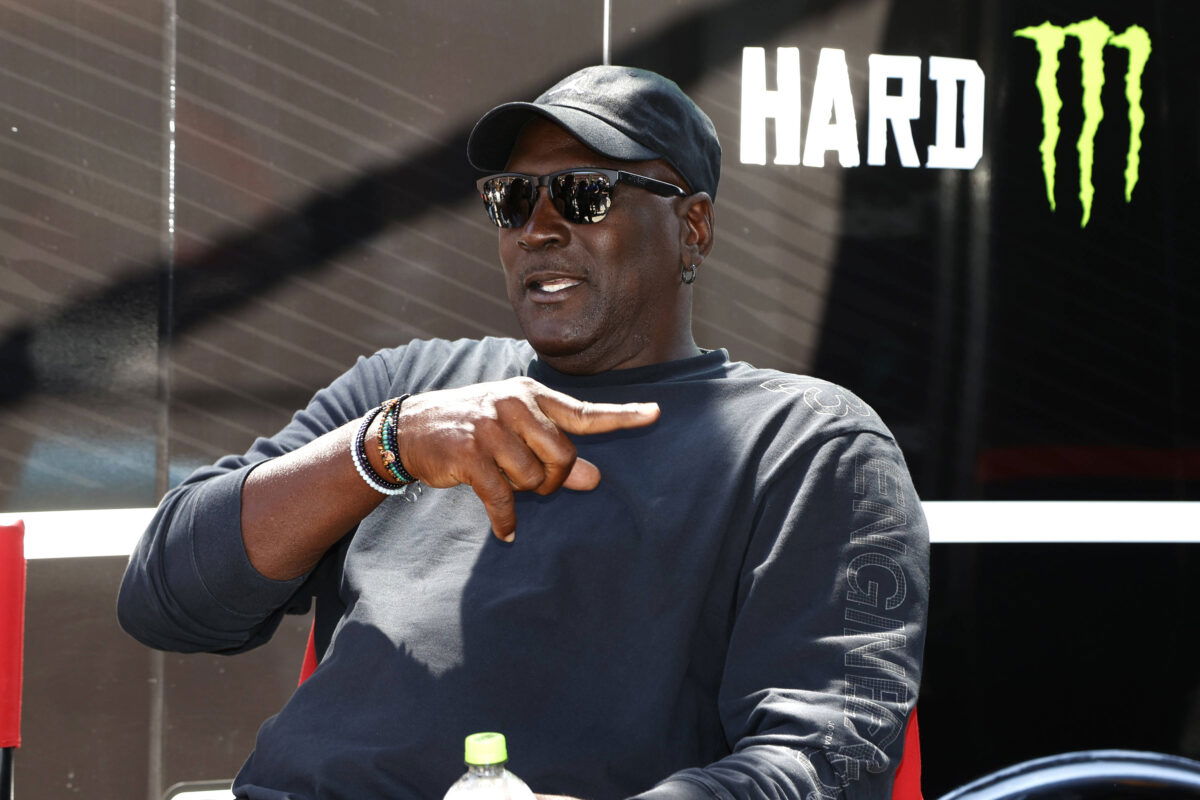Michael Jordan won six NBA titles and five MVPs, but his path wasn’t always linear. In fact, he retired three times. And the first time he walked away from the game, he didn’t just rest—he picked up a baseball bat and chased a completely different dream. MJ’s switch from hardwood to diamond remains one of sports’ wildest pivots, and the scandal that followed still reverberates for a certain media outlet.
Jordan retired from basketball three times: 1993, 1999, and 2003. But that first time in ’93 was a deeply personal moment. “At 30, I was moving so fast,” MJ said, “I never had time to think about all the things I was encountering, all the things I was touching.” That summer, his father, James Jordan, was m——d, and the loss hit him hard. On top of grief, media scrutiny swirling around his gambling added pressure. The grief and pressure proved overwhelming. Jordan stepped away not only to heal, but to honor his father’s dream by playing pro baseball.
That dream took him to places most people didn’t expect. Of all the MJ moments Mike Greenberg witnessed—Olympic gold, NBA titles, NCAA fame—none resonated like a quiet scene in a cramped Double-A clubhouse. After a tough start, Jordan had just notched a hit. It wasn’t history-making. But as the reporters, including Greenberg, wrapped up their questions and started to leave, something made him stop and turn around. What he saw wasn’t the fierce, unshakable MJ who had ruled the basketball world. It was something softer. More human.
 ATLANTA, GA – SEPTEMBER 08: 23xi co-owner Michael Jordan talks with members of his team prior to the running of the NASCAR, Motorsport, USA Cup Series Quaker State 400 available at Walmart on September 08, 2024 at Atlanta Motor Speedway in Hampton, GA. Photo by Jeff Robinson/Icon Sportswire AUTO: SEP 08 NASCAR Cup Series Quaker State 400 available at Walmart EDITORIAL USE ONLY Icon2409083317400
ATLANTA, GA – SEPTEMBER 08: 23xi co-owner Michael Jordan talks with members of his team prior to the running of the NASCAR, Motorsport, USA Cup Series Quaker State 400 available at Walmart on September 08, 2024 at Atlanta Motor Speedway in Hampton, GA. Photo by Jeff Robinson/Icon Sportswire AUTO: SEP 08 NASCAR Cup Series Quaker State 400 available at Walmart EDITORIAL USE ONLY Icon2409083317400
“He was sitting on this bench in this tiny little clubhouse smaller than the locker room at my high school and covered in cheap beer with a cigar and the baseball bat,” Greenberg recalled on the podcast. “And he had a smile on his face like a look of satisfaction that was the equal of what I had seen. This is a man I had seen win gold medals. I had seen win, by at that time, three NBA championships, a national championship in basketball. But he was as satisfied and happy in that moment as I saw him at any other time. And I think there’s such a great lesson in that somewhere that I’ve tried to remember.”
Jordan’s next chapter unfolded with the Birmingham Barons, the White Sox’s Double-A affiliate. At 30 years old, with zero pro baseball experience, he took on a game most guys start mastering in their teens. And while the 1994 season didn’t end in glory, it wasn’t a total loss either. According to Baseball Reference, Jordan posted a .202/.289/.266 slash line with 3 home runs, 51 RBI, 30 stolen bases, 51 walks, and 114 strikeouts across 497 plate appearances.
By Jordan standards, that line might read as failure. Yet he still swiped 30 bases while getting on base under 30% of the time. That speaks volumes about his raw athleticism and drive. Basketball made him an icon. Baseball reminded us he was human—and still ridiculously competitive.
Beyond the SI Cover: Why MJ’s .202 Average masks real Double-A Impact
After just three weeks of training camp, Sports Illustrated ran a Steve Wulf cover story headlined: “Bag it, Michael Jordan and the White Sox Are Embarrassing Baseball.” But if you dig deeper, his numbers tell a different story. Yes, his batting average was low, but he drove in 51 runs, stole 30 bases, and drew 51 walks—numbers unmatched by any White Sox prospect in the previous four seasons.
In fact, a 2020 SI retrospective noted that only nine White Sox prospects in the prior three decades had combined 30 steals, 50 RBIs, and 50 walks in a single season—Jordan was one of them. Terry Francona, who managed Jordan in Birmingham and the Arizona Fall League, said, “If you gave him three years—1,500 at-bats—he could find his way to the big leagues.”
 Bildnummer: 02706578 Datum: 01.09.1994 Copyright: imago/Icon SMI
Bildnummer: 02706578 Datum: 01.09.1994 Copyright: imago/Icon SMIMichael Jordan (Birmingham Barons) – PUBLICATIONxINxGERxSUIxAUTxHUNxONLY (Icon5010320); Vneg, hoch MiLB 1994, Minor League, Birmingham Barons, MLB, Major, Chicago White Sox Birmingham / Alabama Aufnahmedatum geschätzt Baseball Herren Mannschaft USA Einzelbild Aktion Personen
The “Bag It, Michael!” cover didn’t just critique numbers; it questioned Jordan’s very presence in baseball. Jordan took that personally. He refused to ever grant SI another interview. As he told ESPN in 1998, “That’s the problem I still have with Sports Illustrated. I haven’t talked to them since they had that cover. And I’m going to hold to it. What they said was totally wrong. Totally wrong. They didn’t even have an understanding of the situation. I mean, if they would have at least investigated things, they would have known what I was doing. But they made their own assumption…The other day I saw Garth Brooks trying to play baseball. And he’s older than me, isn’t he?”
For MJ, baseball was more than stats. He told reporters in the Fall League, “I like spending time in the clubhouse with the guys. That doesn’t happen in basketball. Guys clear out. The other night we stayed up until one o’clock in the morning playing cards. I love that.” He attacked baseball like an honors-roll freshman—asking questions, studying pitchers, timing his steals, and adjusting his swing to fit his lanky frame.
Then came the strike-shortened 1994–95 season. Jordan chose to leave baseball. On March 18, 1995, he sent a fax with two simple words that shook the sports world: “I’m back.” His baseball detour was over, and the basketball legend returned to the Chicago Bulls, ready to win three more NBA titles. What started as a headline-grabbing gamble turned into a defining chapter of Jordan’s story—a tale of grit, resilience, and fearless pursuit of a dream, no matter how unlikely it seemed.
The post After Public Humiliation, Michael Jordan’s Private Vulnerable Moment Left National Reporter in Shock appeared first on EssentiallySports.


 1 day ago
9
1 day ago
9 










 Bengali (Bangladesh) ·
Bengali (Bangladesh) ·  English (United States) ·
English (United States) ·